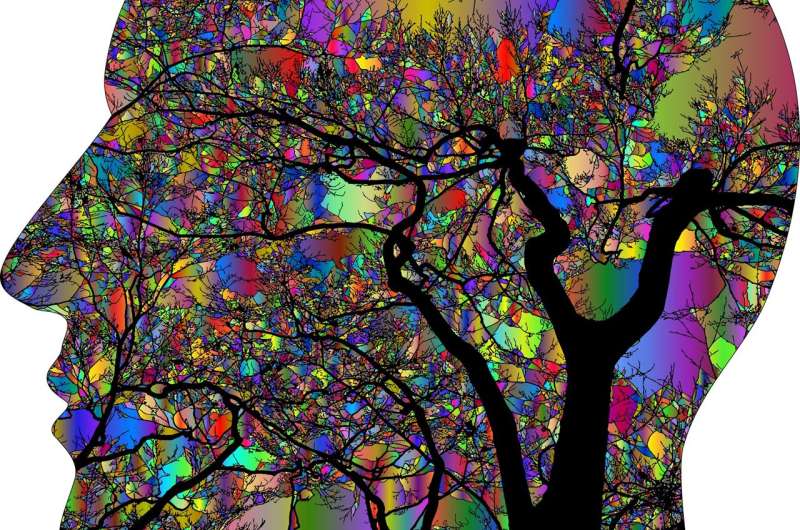
Research supports the promise of psychedelics in treating conditions like depression and post-traumatic stress disorder, but the future regulatory landscape for these drugs remains unclear. Experts from Baylor College of Medicine, the University of Pennsylvania, American University and Harvard Law School call for creativity and collaboration at the federal and state levels in developing policies for the use and oversight of psychedelics and a commitment to developing a strong evidence base for efficacy and safety.
In a paper published in the journal Science, the authors, experts in bioethics, law and policy, propose solutions to three regulatory challenges in anticipation of Food and Drug Administration approval of psychedelics for medical use in the coming years. The publication is part of the Ethical Legal Implications of PSychedelics In Society (ELIPSIS) program at Baylor’s Center for Medical Ethics and Health Policy and the Project on Psychedelics Law and Regulation (POPLAR) at the Petrie-Flom Center for Health Law Policy, Biotechnology, and Bioethics at Harvard Law School.
ELIPSIS aims to address ethical and policy issues surrounding the use of psychedelic medicine. POPLAR, launched in 2021, examines the ethical, legal and social implications of psychedelics research, commerce and therapeutics.
“We are clearly on the brink of a major opportunity to help people legally access psychedelic treatment,” said Dr. Amy McGuire, lead author and Leon Jaworski Professor of Biomedical Ethics and director of the Center for Medical Ethics and Health Policy at Baylor. “Therefore, the need has never been greater to anticipate, identify and discuss challenges, regulations and risks. We hope this dialogue helps all parts of the system prepare and coordinate so patients can access these treatments in an ethical, equitable way as soon as they become available.”
The authors outline a need for regulations around the therapeutic context of psychedelic medicine. It is commonly recognized that the participant’s mindset and the physical setting during therapy are important for the psychedelic experience, and research has focused on the use of psychedelics in the context of assisted psychotherapy.
While the FDA regulates drugs, the agency does not ordinarily regulate conditions of use. The authors propose that the FDA consider risk evaluation and mitigation strategies specifying conditions for safe use, which also may help promote effectiveness, and work with agencies at the state level to enact practitioner certifications and requirements.
The paper also calls for collaboration between federal and state governments as well as state licensing boards and professional societies on decriminalizing psychedelics for both medical and non-medical use, as well as a need to preserve space for traditional and religious uses of psychedelics.
“Considering psychedelics as medicine will require new ways of thinking about regulation, both for FDA and for the regulation of the practice of medicine by states—we hope to help them set an appropriate course while also respecting long-standing use by indigenous populations,” said I. Glenn Cohen, co-author and James A. Attwood and Leslie Williams Professor of Law and deputy dean at Harvard Law School.
The authors warn against following the state-by-state legalization model used for marijuana, which has not provided adequate incentives for the collection of safety and efficacy data necessary for FDA approval. “There is a lot of excitement around the use of psychedelics for therapeutic purposes, and equitable access will be critical, but we have to make sure that allowing these drugs to be used outside FDA’s regulatory pathways doesn’t inhibit the generation of essential evidence about whether, when, and for whom these drugs will serve as strong treatment options,” said Holly Fernandez Lynch, co-author and assistant professor of medical ethics at the University of Pennsylvania’s Perelman School of Medicine.
Finally, the authors stress the need for creative solutions in regulating synthetic and natural psychedelics. Naturally occurring psychedelics are heterogenous and therefore harder to study in clinical trials and difficult to produce consistently for commercial use. Synthetic psychedelics are easier to produce and patent, making them more commercially profitable, but these drugs made with isolated active ingredients may lack the beneficial effects found in natural psychedelics. Therefore, the authors call for funding and support of clinical trials to generate data and ensure a pathway for approval of naturally occurring psychedelics.
“During an age when scholars and policy makers are struggling to adapt FDA’s traditional regulatory modalities to cutting edge technologies, such as gene therapy and machine learning, this paper highlights the comparably daunting regulatory challenges posed by a product from the other end of the spectrum—a naturally occurring botanical product used for millennia,” said Dr. Lewis A. Grossman, co-author and professor of law and affiliate professor of history at American University Washington College of Law.
More information:
Amy L. McGuire, Pressing regulatory challenges for psychedelic medicine, Science (2023). DOI: 10.1126/science.adg1324. www.science.org/doi/10.1126/science.adg1324
Journal information:
Science
Source: Read Full Article
